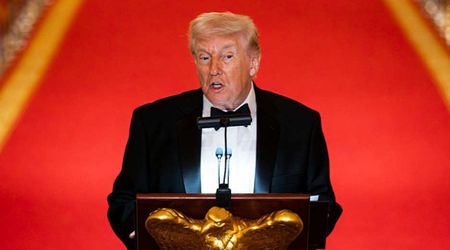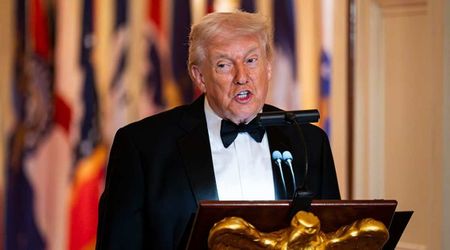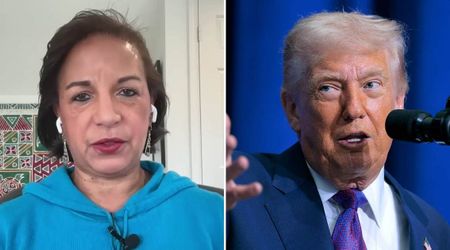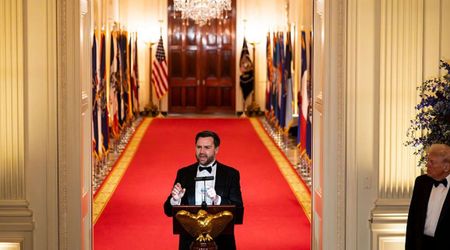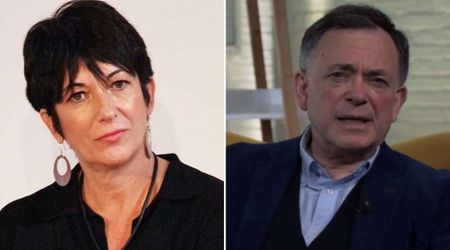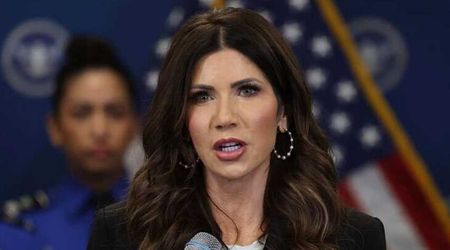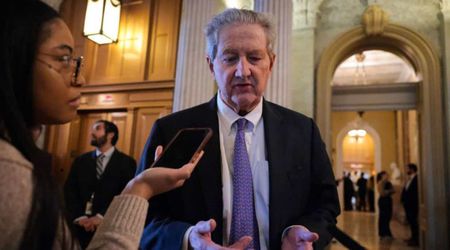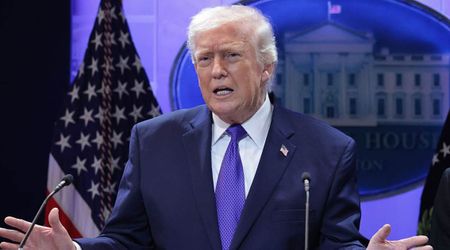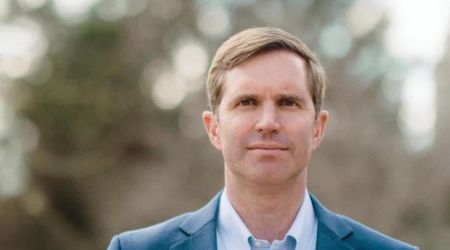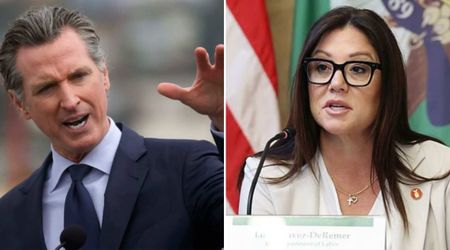A crucial history lesson for Jill Biden: Lady Bird Johnson's pivotal role in convincing Lyndon B Johnson to step down

WASHINGTON, DC: Joe Biden's presidency has often been likened to Lyndon B Johnson’s due to its impact on domestic policy. However, a crucial comparison that is often overlooked is the instrumental role Lady Bird Johnson played in shaping and executing the strategy that led LBJ to step aside after a single term.
This is a parallel that First Lady Jill Biden should study carefully as the coming days could be the most significant of her life, according to The Daily Beast's Julia Sweig.
Similarities between Jill Biden and Lady Bird Johnson
Jill Biden and Lady Bird Johnson share notable similarities in their paths to becoming First Ladies. Both served as senators' wives and second ladies before entering the White House. They also faced significant crises—civil rights, Covid-19, the Capitol Hill insurrection, and issues related to Israel—that tested the nation's social fabric.
Now, like Lady Bird, Jill must assist her husband in making a pivotal decision: whether to pursue a second term.

When LBJ reluctantly accepted the vice-presidential slot on JFK’s 1960 ticket, he was serving as Senate Majority Leader, a position he found more powerful and fulfilling. The shift felt like a demotion to him, described by Lady Bird as "like trying to swallow a nettle: hurt, sticky, spiny."
As detailed in Sweig's book, 'Lady Bird Johnson: Hiding in Plain Sight', while LBJ struggled with his new role, Lady Bird began to flourish. An often despondent Jackie Kennedy delegated many ceremonial duties to her, which she accepted gracefully.
The Johnsons' ascension to the presidency was marked not by election but by assassination, a transition far more jarring than any previous experience. Initially, Lady Bird believed they were mere caretakers, destined to hold office for only 13 months.
However, six months into the presidency, Lady Bird, a devoted New Deal Democrat, saw the potential for LBJ—with her assistance—to advance the domestic policy agenda left unfinished by FDR's death in 1945, particularly in civil rights and universal health care.
Lady Bird Johnson reassured Lyndon B Johnson of his worthiness
Lady Bird faced two significant obstacles: her husband and the country. LBJ was haunted by depression and the very real fear of not surviving a full term due to a severe heart attack in 1955. Despite his image as a powerhouse, LBJ’s ability to wield power took a heavy toll on his mental and physical health.
The strain of serving as Senate Majority Leader had nearly killed him; the presidency could be even more damaging.
Lady Bird was acutely aware of these concerns. As early as May 1964, she understood "the depth of [Lyndon’s] pain, when and if he faces up to the possibility of sending many American boys to Vietnam or some other place." LBJ's concern was less about defeating Barry Goldwater and more about maintaining public support and governing effectively in the long term.
Despite her outwardly stiff demeanor, Lady Bird possessed deep wisdom, stamina, and critical political judgment, making her a trusted advisor to her husband. In May 1964, at LBJ’s request, she retreated to the Huntland estate in Virginia to draft a strategy memo.

This memo proposed that LBJ commit to a single full term, arguing against early retirement which she feared would drive him (and her) mad. "If you win, let’s do the best we can for three years and three or four months," read her conclusion to the memo. Then, she suggested that in "February or March 1968" LBJ should announce that he would not seek reelection.
LBJ followed through and defeated Goldwater, passing landmark legislation like the Civil Rights Act and the Great Society programs before Vietnam escalated into an intractable crisis. By the fall of 1967, however, the national mood had soured.
Lady Bird, who had been somewhat insulated from public life, began to shift her focus after encountering protests during her environmental campaign appearances and facing the personal impact of her daughters’ partners preparing to deploy to Vietnam.
A campaign for withdrawal and a lesson for Jill Biden
Lady Bird desired to be fully aware of the country's sentiments, saying, "I want to know what’s going on—even if to know is to suffer." She began counting the days to the end of LBJ's term and initiated a campaign in October 1967 to focus Lyndon on the timing of his announcement not to run for a second term.
She played a crucial role in drafting his January 1968 State of the Union address, which included a section about not running for reelection, albeit he chose not to deliver it then.
Finally, on March 31, 1968, in an Oval Office address intended to discuss Vietnam, LBJ announced, "I shall not seek, and I will not accept, the nomination of my party for another term as your President."
Lady Bird's strategic guidance over nearly four years culminated in this announcement, a blueprint from which Jill can learn, Sweig insists. Coaxing her husband away from a job he loves—and in which he sees great potential for a second term—could be her most challenging political moment.
Yet, it may be as crucial as safeguarding the American republic in the upcoming months.

